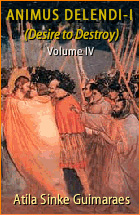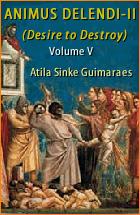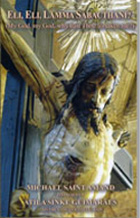NEWS: March 1, 2023
 |
 |
 |
 |
 |
 |
 |
Bird’s Eye View of the News

EVALUATING THE RESCRIPT -
The Rescript, officially issued on February 20, 2023, but only released to the press on the 23rd, is causing a lot of turmoil among conservative Bishops and the traditionalist clergy and laity. Card. Arthur Roche – Prefect of the Congregation for the Divine Worship – signed the document.
Catholics are not accustomed to this type of document, so let me look for its meaning. The Dictionnaire de Théologie Catholique defines it this way: “Rescript is a written answer made by the Prince to a report or a consultation. The word Prince, before the Code of Canon Law [of 1917], designated the Holy See. After the Code, it designates the Holy See and the Ordinary. The pontifical rescript in the form of a decretale should be differentiated from the oral response, motu proprio, decree, law or privilege.” (DTC, Vacant-Mangenot, Tables III, cols. 3895-3896; see also Dictionnaire de Droit Canonique, R. Naz, t. VII, cols. 609-635)
So, the Rescript issued nine days ago, in which Card. Roche dictates some rules and affirms they were approved by Pope Francis, seems to be a pontifical decretale, with binding force upon all those it concerns, that is, all the Catholic Bishops and the traditionalist clergy.
/bev277_Roc.jpg) As soon as the Rescript was published in Italian, TIA offered to its readers an
English translation; I will use it as a point of reference in this article.
As soon as the Rescript was published in Italian, TIA offered to its readers an
English translation; I will use it as a point of reference in this article.
The content of the Rescript is substantially this:
Bergoglio & Ratzinger: Allies, not Enemies
/bev277_Emb.jpg) Since I am addressing this topic, I believe I should say a word about the supposed antagonism between Francis and Benedict regarding the use of the '62 Missal. There is no antagonism: Both Popes wanted to reduce the '62 Missal and the '69 Missal to one single rite in which the New Mass would be said in a more traditional way by all the priests of the Conciliar Church. Benedict was adamant about this intention in one declaration he made that I commented upon years ago in one of my columns entitled
Heading to a Hybrid Mass.
Since I am addressing this topic, I believe I should say a word about the supposed antagonism between Francis and Benedict regarding the use of the '62 Missal. There is no antagonism: Both Popes wanted to reduce the '62 Missal and the '69 Missal to one single rite in which the New Mass would be said in a more traditional way by all the priests of the Conciliar Church. Benedict was adamant about this intention in one declaration he made that I commented upon years ago in one of my columns entitled
Heading to a Hybrid Mass.
The only difference is that Benedict tried to reach that goal by making a long loop in which he forbade the Missal of St. Pius V, prior to 1945 – which he considered a dead liturgy – and allowed only the '62 Missal – already contaminated by the same errors of the '69 Missal (here, here, here, here, here, here and here). Francis is trying to reach the same goal only after Benedict’s loop maneuver backfired. Indeed, his maneuver encouraged many Catholics to reject the Novus Ordo Mass as well as Vatican II.
Benedict XVI was far, far from being a protector of the Tridentine Mass as many wrongly imagine. His goal was to anesthetize the reactions and gradually bring traditionalists to the New Mass and Vatican II. Since the plan backfired, Francis is now bulldozing the oppositions.
This brutal tactic is bad for us. But let us not try to face one persecution by swallowing the poisoned idea that Pope Ratzinger was favorable to us.

Catholics are not accustomed to this type of document, so let me look for its meaning. The Dictionnaire de Théologie Catholique defines it this way: “Rescript is a written answer made by the Prince to a report or a consultation. The word Prince, before the Code of Canon Law [of 1917], designated the Holy See. After the Code, it designates the Holy See and the Ordinary. The pontifical rescript in the form of a decretale should be differentiated from the oral response, motu proprio, decree, law or privilege.” (DTC, Vacant-Mangenot, Tables III, cols. 3895-3896; see also Dictionnaire de Droit Canonique, R. Naz, t. VII, cols. 609-635)
So, the Rescript issued nine days ago, in which Card. Roche dictates some rules and affirms they were approved by Pope Francis, seems to be a pontifical decretale, with binding force upon all those it concerns, that is, all the Catholic Bishops and the traditionalist clergy.
/bev277_Roc.jpg)
Francis assigns Arthur Roche to destroy Traditionalism
The content of the Rescript is substantially this:
- A strong restriction on Bishops to allow the use of parishes for the movements or private groups that say the Traditional Mass according to the 1962 Roman Missal. Any past permission must be confirmed by the Vatican; any future permission must be approved by the Vatican;
- A strong restriction on Bishops to allow priests ordained after Traditiones custodies, which was issued on July 16, 2021, to say the Mass according to the '62 Missal. All new permissions should be suspended until the Vatican approves them.
- This Rescript is a repeat of other previous documents. Indeed, Traditionis custodes – TC – already said something quite similar. Also, TC was accompanied by an Explanatory Letter reinforcing its content. Next, Roche – then Archbishop, today Cardinal – issued a Responsa ad dubia in December 2021, saying more or less the same things. Now, the Rescript hits the same nail.
The question that necessarily comes to mind is: Why this repetition? The only answer that I could come up with is that the Bishops are not following Francis’ radical legislation to strangle the ‘62 Mass.
There are many reasons for them to do this:
- Benedict XVI with the Summorum Pontificum told the Bishops to allow this Mass for the priests or groups who would ask for it, and many did; it is contradictory and difficult to undo this permission after such a great struggle to achieve it;
- For the Bishops who do not belong to the hothead branch of Liberation Theology to which Francis belongs, it has to be hard to align themselves with all the radical demands he is making, which have even raised eyebrows among the middle-of-the-road Catholics who constitute the grassroots of their Dioceses. As a matter of fact, Francis’ constant support for
homosexuality and transgenderism, his use of profane language, his close connections with Freemasonry, his promotion of Communism governments, have not been received favorably.
- These Bishops are taking a procrastinating approach to these new revolutionary guidelines, deferring their implementation to the future. They give different practical pretexts for this delay with the hope that Francis will pass away and a new more reasonable Pope will undo many things that he did. In fact, his several trips to Rome’s Gemelli Hospital for colon cancer surgery and his increasing difficulty in walking can only encourage those Prelates to continue this dilatory policy.
- The traditionalist parishes habitually are among the most frequented parishes in the Dioceses, which bring life to the Church and fund to the coffers, pointing to a promising future. On the other hand, the Novus Ordo parishes are increasingly empty, projecting a gloomy future and the closing of churches.
- The seminaries of these traditionalist movements are filled with many candidates, while the Diocesans seminaries have few vocations, with almost all of those tainted by the vice of homosexuality – either practiced or accepted as normal.
- Some of the traditionalist movements that say the '62 Mass have become quite wealthy and certainly are able to manifest their gratitude in a very compelling way to the Prelates who give them permission to say the Latin Mass.
/bev277_Bis.jpg)
Bishops have been slow in enforcing
Francis' draconian rules - Benedict XVI with the Summorum Pontificum told the Bishops to allow this Mass for the priests or groups who would ask for it, and many did; it is contradictory and difficult to undo this permission after such a great struggle to achieve it;
- The second weak point in the Rescript is that it leaves a gray area for all the priests who were ordained before June 2021 and did not receive parishes.
Yes, the Rescript is clearly demanding that the Bishops must report to the Vatican all the priests ordained after TC who ask or have asked permission to say the '62 Mass. But, what about those priests who were ordained before that date?
Yes, the Rescript is clearly demanding that permission for the groups who received parishes to say the '62 Mass be confirmed by the Vatican. This is directly aimed at the Fraternity of St. Peter, the Institute of Christ the King, the Institute of the Good Shepherd, the Apostolic Administration of St. John Mary Vianney and other such priestly organizations. But, what about those priests who do not belong to these organizations and say the Latin Mass in churches where both the Novus Ordo Mass and the '62 Mass are said once in a while?
I am not sure why Francis/Roche left these sectors aside for now in their battle plan. Will they attack them later or will this group pass through the cracks and continue to say the '62 Mass?
These are but a few reasons for Bishops to not be too enthused in complying with Francis’ TC directives and the draconian diktats of Card. Roche.
Bergoglio & Ratzinger: Allies, not Enemies
/bev277_Emb.jpg)
Francis & Benedict were allies, not enemies
The only difference is that Benedict tried to reach that goal by making a long loop in which he forbade the Missal of St. Pius V, prior to 1945 – which he considered a dead liturgy – and allowed only the '62 Missal – already contaminated by the same errors of the '69 Missal (here, here, here, here, here, here and here). Francis is trying to reach the same goal only after Benedict’s loop maneuver backfired. Indeed, his maneuver encouraged many Catholics to reject the Novus Ordo Mass as well as Vatican II.
Benedict XVI was far, far from being a protector of the Tridentine Mass as many wrongly imagine. His goal was to anesthetize the reactions and gradually bring traditionalists to the New Mass and Vatican II. Since the plan backfired, Francis is now bulldozing the oppositions.
This brutal tactic is bad for us. But let us not try to face one persecution by swallowing the poisoned idea that Pope Ratzinger was favorable to us.
















